Gardening is a hobby and a very fun and rewarding activity. As a beginner, you like to plant a garden bed. But you don't know much about gardening. There are a few important things to know before you start planting.
-
What and when to plant in spring garden beds?
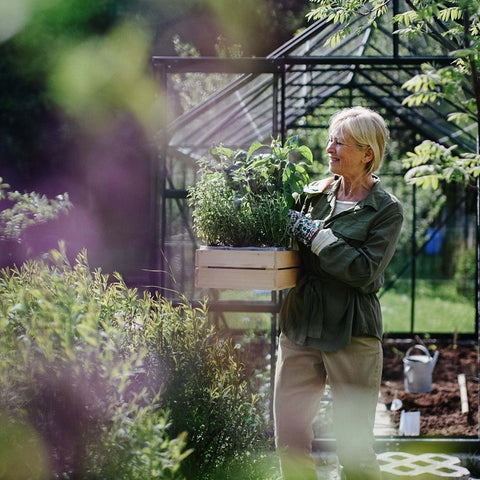
Creating a home garden, garden bed, vegetable, fruit garden, or all of these gardens is more about plants growing well with each other, and how things look. Depending on some examples, some plants can excrete material that may limit the growth of others, and large, tall plants may cover shorter plants.
Also, plants in the same family attract the same insects and need to be replaced every year.
Suppose all garden beds or Spaces, soil and nutrients look heavy and you have a lot of sharp things in your garden bed; It will do you a lot of good. However, to overcome initial impressions, gardening is just as attractive and fun as it looks.
The wonderful thing about gardening is that you can paint your green spots any color you see fit, because there are so many wonderful plants, flowers, vegetables or fruits to grow.
If you have vegetable plants in your garden, these plants will be eaten by you and your family, and sometimes you can give them to your friends. Therefore, having a garden is more valuable than a beautiful natural space. So, if you haven't considered organic gardening before, you might want to consider it with some good knowledge.
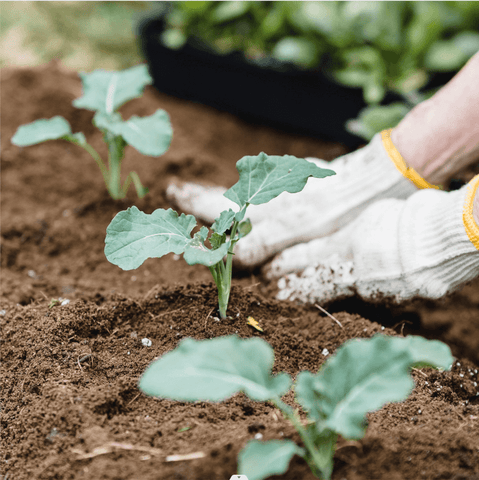
If you are new to gardening, you are warmly welcomed. You are about to climb a mountain that is challenging, inspiring, mysterious and equally enlightening. There are several things you should consider as a first step if you want to give your garden the most wonderful advantage.
Here are the basic things that must be considered for a breathtakingly beautiful and valuable garden.
- Choose the type of plant best suited for planting.
Some people like their salads to sprout from the garden at home. Others may be more involved in transforming their yard with pretty flowers. However, most people like to grow flowers, vegetables and fruit in their garden, which is a total solution. First, you should know your purpose, which will guide you in choosing which plants to grow on your land.
If you enjoy gardening food, think about what you enjoy cooking and eating the most. If you don't like carrots or melons, there's no need to grow these fruits or vegetables. Grow vegetables or fruits that you find delicious. Another simple thing to keep in mind is the amount of space and sun conditions you have. Start thinking about whether you're gardening in a field or in a pot, how much sunlight the area receives each day, and whether it provides some sunlight.
The amount of time you can spend in the garden is also a major factor to consider. Since this is the amount of money you want to spend on gardening, plants need daily care, so be reasonable about how much time you can spend weeding, watering, etc. In general, it's a smart idea to start small and learn the basics before choosing a major. You can optimize from there if you like.
A quick experiment to see if a plant has enough water is to place a finger in the soil to make sure it feels 2 to 3 inches wet beneath the surface. If you want to be stingy, it's best to use a watering can or sprinkler when watering, as too much water can instantly kill the plants. However, if your area gets a lot of rain, this won't make for a daily chorus.
- Water,
Most plants like water very much. Plants are passionate about water, and they need it to live healthy lives. The right amount of water they need depends on a number of other factors. Hot and dry air can absorb water from the soil and plants more quickly, so more watering is needed as temperatures rise.
The type of garden you have and the condition of the soil can also affect how much water plants get. A reasonable rule of green experience is that plants can splash enough water each week to cover an inch of ground. It's much easier for plants to get all their water once or twice a week than every day. Think of it as an intermittent plant fast
- Use the necessary equipment to make it easy.
However, many facilities and equipment in the modern world can make your gardening activities more convenient. But they don't need a lot of tools or a lot of investment. Lazy workers blame bad equipment. There is no such thing as a failed gardener. You don't need all kinds of equipment to be a gardener, but gardeners do need some basic equipment.The following content also has some reference value for raised garden beds.
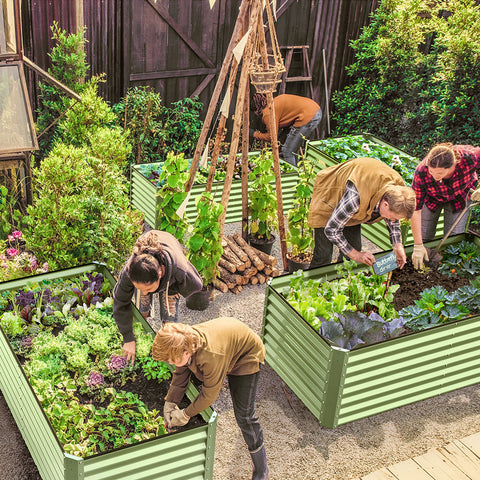
However, if you get value for it, there is no end to gardening excitement, enhancing it with more beauty. The larger the area you plant, the more resources you are likely to need. One of the main reasons people are interested in gardening is that it reduces the cost of food. Including the extra cost of equipment seems counterproductive.
It is beneficial to have a shovel, a watering can, a shovel, a hoe, and a digging fork in a garden with a high bed or bed. For a larger garden, you will need heavy equipment, such as a rototiller, to prepare the land, but this is not needed if you prefer gardening exercise.
But if you're in a limited spatial location, start with the smallest and add things as needed. Container gardens are very easy to use. You'll basically need the following, including containers, limited amounts of water in pot soil, a small shovel, and even a solid cooking spoon to create your container garden.
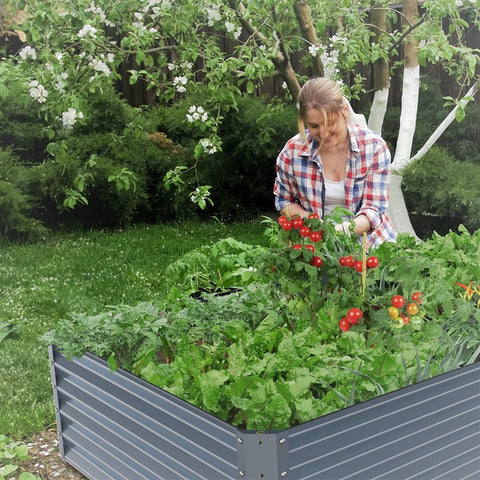
- It's time to put down the roots and prepare to plant
Eventually, it really is time to start growing some plants in the garden. You will have the opportunity to purchase seeds or small starter plants to transplant into your garden when you purchase them. Many vegetables and flowers are cheap and easy to make from seeds, so this is an easier and more affordable option.
In several cases, especially in practical situations, buy plants instead of seeds because it is difficult for plants to grow from seeds when the growing season is extremely short. Also, some people have larger plant requirements that can make the garden look more attractive.
Most types of seeds can be planted in POTS and then transplanted outdoors, mixing two of the best seeds in the world. The instructions for planting depend on what is being grown. More often than not, the seed package will tell you what you need to remember. You can seed in lines or geometric shapes to make the space more efficient. Sow the seeds in the soil and the depth depends on the type of plant. Then it covers them with earth and water.
If you are using starter plants, dig a hole wide enough to accommodate the plant you are transplanting so that the roots have plenty of room to grow. Gently wrap the soil around the roots so that the plant stays on the ground, as if in a pot. Be sure to water the soil well after planting seeds or starter cultures.
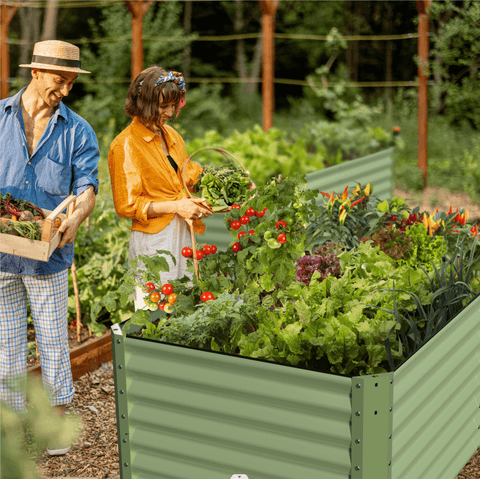
- Take care of your plants
When plants are growing, one of the biggest challenges is keeping weeds, pests and diseases out of the greenhouse. Now they're your new kids, and you're mom and dad. So you have to protect them. Weeds are inevitable at some point, but as long as they don't start pulling your plants out, that's fine. The best way is to remove them every week to prevent them from getting out of control.
Often, it is easier to get weeds out of the ground because the soil is weathered. Hoes are best for dry soil. Mulching the soil with mulch or grass while retaining moisture can help reduce weeds. Some garden insects and diseases also threaten experienced gardeners. But a little preparation can solve a lot of problems.
Most bugs and diseases that affect plant damage are more likely to occur when plants are stressed, so plenty of sunlight, water, and nutrition can minimize gardening challenges. There are many natural alternatives to avoid and manage pests and diseases in your garden, so you don't have to go the route of pesticides.
In addition to magnificent and beautiful Spaces, gardening allows us to make gifts with precision. It also helps to create a healthy body, mind and environment. Gardening can often help, from collecting oxygen to adding a little greenery.
There are many benefits to gardening this way. It's a perfect way to interact with nature and enjoy its fruits for a long time. Therefore, the above basic guidelines will help you to build your garden more fully. However, don't forget proper maintenance to maximize the function and beauty of your garden









